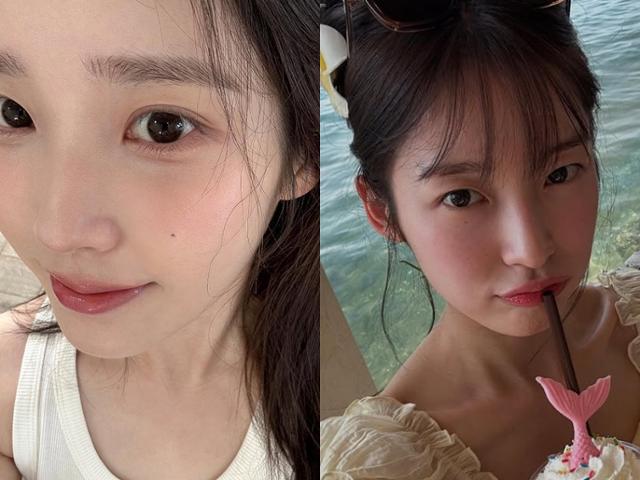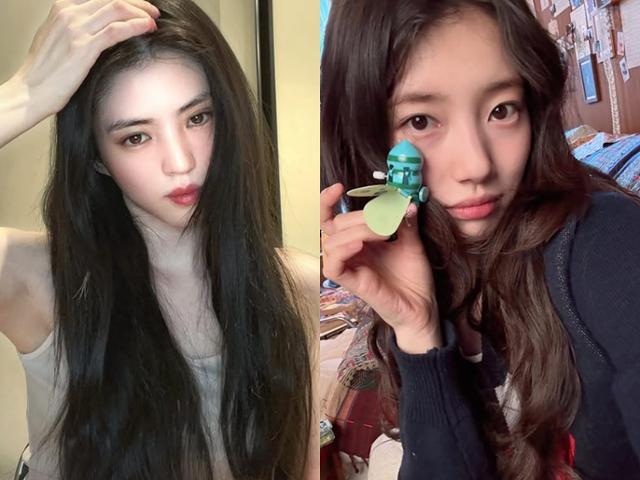
IU, left, and Arin wear the "no mascara" makeup look. Captured from social media
For years, glamorous lashes have dominated the social media feeds of K-pop idols and celebrities, with bold mascara and intricate lash extensions serving as the focal point of many makeup looks. But now, a subtle shift is taking place in the beauty scene as the "no mascara" trend gains momentum.
Unlike traditional eye makeup that relies on dramatic mascara or lash extensions, the "no mascara" approach emphasizes a more natural and minimalistic aesthetic. Soft eye shadow and gentle blush are still welcome, but the goal is to enhance facial features without overloading the eyes. Light contouring around the eyes using neutral shadow tones can create depth and definition, while a dewy complexion completes the fresh, youthful look.
Singer and actress IU is widely seen as a leading figure in this trend. Her recent appearances feature a flush of pink tones on her cheeks and eyelids, but no visible mascara, creating a translucent, radiant effect. Arin of K-pop girl group Oh My Girl has also embraced the trend, keeping her eye makeup minimal while sporting rosy cheeks that highlight her innocent charm.

Han So-hee, left, and Suzy show off their charms with the "no mascara" makeup look. Captured from social media
Actress Han So-hee has drawn attention for her choice to skip mascara entirely, yet still maintains sharp and defined facial features. Similarly, singer and actress Suzy captivated fans with her bare-eyed, natural look, letting her understated beauty shine through. Their makeup styles have received praise from fans who appreciate the effortless aesthetic.
In addition to being easy to maintain, the trend offers practical benefits for eye health. Excessive use of mascara can clog the meibomian glands, potentially leading to eye discomfort or other issues. Failing to properly remove mascara can also increase the risk of eye infections and irritation, experts say.
This article from the Hankook Ilbo, the sister publication of The Korea Times, is translated by a generative AI system and edited by The Korea Times.
 Subscribe
Subscribe E-Paper
E-Paper